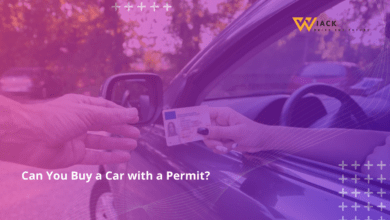How Long Do Speeding Tickets Stay on Your Record?

Did you know that over 41 million speeding tickets are issued in the United States each year? That’s about one ticket every second! With so many drivers receiving citations, it’s crucial to understand the long-term implications of these violations. In this comprehensive guide, we’ll explore the question: “How long do speeding tickets stay on your record?” and provide valuable insights to help you navigate the consequences of a speeding ticket.
Understanding the Impact of Speeding Tickets
The Basics of Speeding Tickets and Your Record
When you receive a speeding ticket, it’s more than just a momentary inconvenience or a fine to pay. These citations can have lasting effects on your driving record, insurance rates, and even your ability to maintain a valid driver’s license. Understanding the basics is the first step in managing the impact of a speeding ticket.
A speeding ticket is typically classified as a moving violation. When you’re cited for speeding, the ticket is recorded in the state’s Department of Motor Vehicles (DMV) database. This record serves as an official documentation of your driving behavior and is accessible to law enforcement, the court system, and insurance companies.
How Long Does a Speeding Ticket Stay on Your Record?
The duration a speeding ticket remains on your record varies significantly depending on your state of residence. On average, speeding tickets stay on your record for 3 to 5 years. However, this timeframe can range from as little as 12 months to as long as 10 years, or even permanently in some cases.
For example:
- In California, a speeding ticket typically stays on your record for 3 years and 3 months.
- In New York, it remains for 18 months.
- In Virginia, speeding tickets can stay on your record for up to 5 years.
It’s important to note that even after a ticket is no longer visible on your public driving record, it may still be accessible to law enforcement or court officials for a longer period.
Why Do Speeding Tickets Stay on Your Record?
Speeding tickets remain on your record for several reasons:
- Public Safety: By keeping a record of traffic violations, states can identify and address patterns of unsafe driving behavior.
- Law Enforcement: Police officers can access your driving history during traffic stops, helping them make informed decisions about warnings versus citations.
- Insurance Risk Assessment: Insurance companies use your driving record to assess risk and determine premium rates.
- Employment Screening: Some employers, particularly those hiring for driving positions, may review driving records as part of their background check process.
Understanding these reasons can help you appreciate the importance of maintaining a clean driving record and the potential long-term consequences of speeding tickets.
The Impact on Your Driving Record
Driver’s License Points
Many states use a point system to track driving infractions. When you receive a speeding ticket, points are typically added to your license. The number of points can vary based on how far over the speed limit you were driving.
For instance:
- In New York, speeding 1-10 mph over the limit adds 3 points to your license.
- In California, speeding 1-15 mph over the limit results in 1 point.
- In Florida, speeding 15 mph or more over the limit adds 4 points.
These points can accumulate over time, potentially leading to license suspension or increased insurance rates. It’s crucial to understand your state’s point system and how long these points remain active on your license.
License Suspension
Accumulating too many points within a specific timeframe can result in license suspension. The threshold for suspension varies by state and can depend on factors such as your age and driving history.
For example:
- In New York, accumulating 11 points in 18 months can lead to license suspension.
- In California, 4 points in 12 months, 6 points in 24 months, or 8 points in 36 months can trigger a suspension.
Understanding these thresholds can help you gauge the severity of a speeding ticket and its potential impact on your driving privileges.
The Impact on Your Car Insurance
Increased Premiums
One of the most significant and immediate impacts of a speeding ticket is often an increase in your car insurance premiums. Insurance companies view speeding tickets as indicators of risky driving behavior, which translates to a higher likelihood of future claims.
On average, a single speeding ticket can increase your car insurance rates by 20-30%. However, this percentage can vary widely based on factors such as your insurance provider, your previous driving record, and the severity of the speeding violation.
Factors Affecting Insurance Rate Increases
Several factors influence how much your insurance rates may increase after a speeding ticket:
- Your driving history: If this is your first ticket in an otherwise clean driving record, the impact may be less severe.
- The severity of the violation: Speeding 5 mph over the limit will likely have less impact than speeding 20 mph over.
- Your age and gender: Younger drivers and male drivers often see higher rate increases.
- Your insurance company: Different insurers have varying policies on how they factor speeding tickets into their rates.
- Your state: Insurance regulations and average rate increases can vary significantly from state to state.
How Long Insurance Rate Increases Last
The duration of increased insurance rates due to a speeding ticket often aligns with how long the ticket stays on your driving record. However, some insurance companies may only look back 3-5 years when setting rates, even if the ticket remains on your record for longer.
It’s important to note that while your rates may eventually return to normal, you could lose out on safe driver discounts for a longer period. This indirect cost can be substantial over time.
State-Specific Information
State-by-State Guide
Given the significant variations in how states handle speeding tickets, it’s crucial to understand the specific rules in your state. Here’s a brief overview of how long speeding tickets stay on records in various states:
| State | Duration on Record |
|---|---|
| California | 3 years and 3 months |
| New York | 18 months |
| Florida | 5 years |
| Texas | 3 years |
| Illinois | 4-5 years |
| Pennsylvania | 1 year (for point removal) |
| Ohio | 2 years |
| Georgia | 2 years |
| North Carolina | 3 years |
| Michigan | 7 years |
Remember, this is just a snapshot. Always check with your state’s DMV for the most up-to-date and accurate information.
Permanent Records vs. Point Removal
It’s important to distinguish between how long a ticket stays on your official driving record and how long points associated with that ticket affect your license status. In some states, like Nevada, the ticket may remain on your permanent record indefinitely, even after points have been removed.
For example:
- In Nevada, points are removed after 1 year, but the conviction remains on your record permanently.
- In Pennsylvania, points are removed after 12 months of violation-free driving, but the ticket remains on your record for much longer.
Understanding this distinction can help you better manage your driving record and insurance rates over time.
Tips for Mitigating the Impact
Taking a Defensive Driving Course
Many states offer the option to take a defensive driving course to reduce the impact of a speeding ticket. Benefits of these courses can include:
- Point reduction on your license
- Prevention of insurance rate increases
- Ticket dismissal (in some cases)
For instance, in New York, completing a defensive driving course can remove up to 4 points from your license and provide a 10% reduction in your base auto insurance rates for three years.
Fighting the Ticket
Contesting a speeding ticket in court can be an effective way to mitigate its impact. While it requires time and effort, successfully fighting a ticket can prevent points from being added to your license and avoid insurance rate increases.
When considering this option:
- Gather all relevant evidence (photos, witness statements, etc.)
- Research the specific traffic law you’re accused of violating
- Consider hiring a traffic attorney for more complex cases
Remember, even if you don’t win outright, you may be able to negotiate a reduced charge or penalty.
Traffic School
Traffic school, similar to defensive driving courses, can be an excellent option for mitigating the impact of a speeding ticket. Many states allow drivers to attend traffic school to:
- Dismiss the ticket entirely
- Prevent points from being added to your license
- Avoid insurance rate increases
For example, in California, eligible drivers can attend traffic school once every 18 months to mask a ticket from their public driving record, preventing insurance companies from seeing it.
Getting a Clean Driving Record
Maintaining a clean driving record after receiving a speeding ticket is crucial. Here are some tips:
- Obey all traffic laws: This seems obvious, but it’s the most effective way to avoid future tickets.
- Use cruise control: On long drives, this can help you maintain a consistent, legal speed.
- Be aware of speed limits: Pay attention to posted signs, especially when entering new areas.
- Allow extra time: Rushing often leads to speeding. Plan your trips with buffer time to reduce the temptation to speed.
- Consider a speed warning device: Some GPS devices can alert you when you’re exceeding the speed limit.
By following these tips and staying violation-free, you can eventually restore your clean driving record and potentially qualify for safe driver discounts.
Additional Considerations
The Impact of Multiple Tickets
While a single speeding ticket can be manageable, multiple tickets in a short period can have severe consequences. These may include:
- Higher insurance premiums: Each additional ticket can lead to steeper rate increases.
- License suspension: Accumulating too many points too quickly can result in license suspension.
- Limited employment opportunities: Jobs that require driving may be off-limits with multiple recent violations.
- Mandatory driver improvement programs: Some states require drivers with multiple violations to complete specific courses.
It’s crucial to take every ticket seriously and take steps to prevent future violations.
The Impact of Serious Violations
Not all speeding tickets are created equal. Excessive speeding or speeding in certain areas (like school zones) can result in more severe penalties. These may include:
- Reckless driving charges: Speeding 20-25 mph over the limit can sometimes result in reckless driving charges, which carry heavier penalties.
- Immediate license suspension: In some states, extreme speeding can lead to on-the-spot license suspension.
- Criminal charges: In severe cases, speeding can result in criminal charges, especially if it leads to an accident.
- Longer record duration: More serious violations often stay on your record longer than standard speeding tickets.
Understanding these potential consequences can help you make better decisions on the road and appreciate the importance of safe driving.
The Importance of Safe Driving Practices
While understanding “How long do speeding tickets stay on your record?” is important, the best strategy is to avoid getting tickets in the first place. Safe driving practices not only keep you and others safe but also protect your driving record and insurance rates.
Consider these safe driving tips:
- Always be aware of your speed: Regularly check your speedometer, especially when entering new areas.
- Leave early: Give yourself plenty of time to reach your destination to avoid the temptation to speed.
- Use technology wisely: Many modern cars have speed limit alerts. Use these features to your advantage.
- Stay focused: Distracted driving often leads to unintentional speeding. Keep your focus on the road and your speed.
- Understand the risks: Remember that speeding increases the risk of accidents and the severity of injuries in case of a crash.
By prioritizing safe driving, you not only avoid the hassle and expense of speeding tickets but also contribute to safer roads for everyone.
In conclusion, while the answer to “How long do speeding tickets stay on your record?” varies by state and circumstance, the impact of these tickets can be significant and long-lasting. By understanding the potential consequences, taking steps to mitigate the impact when necessary, and prioritizing safe driving practices, you can protect your driving record, your insurance rates, and most importantly, your safety on the road.
Remember, the best speeding ticket is the one you never receive. Drive safely, stay informed, and enjoy the road responsibly!
Get the latest car news, reviews, and prices at Wiack.com. Your one-stop destination for all things automotive.





